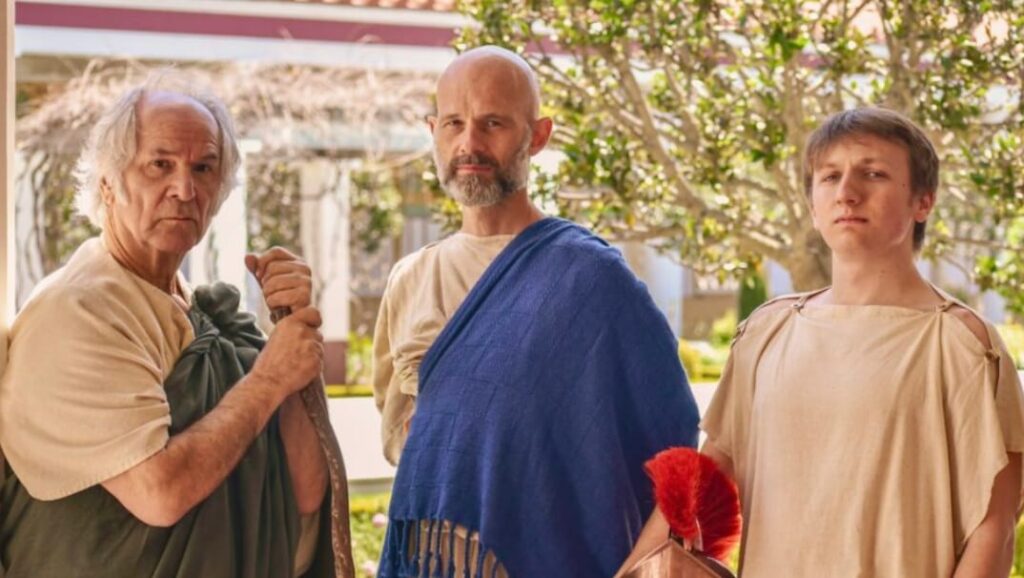
Andrew Byron doesn’t act. He transmutes.
Forged in a drama school that prized psychological purification over polish—cold baths, daily meditation, and ego dismantling—Byron emerged not just as a performer but as a craftsman of inner space. And with over 50 screen roles spanning spy thrillers, epic fantasies, and philosophical plays, his transformation never stopped.
What sets Byron apart isn’t fame, but friction. In a business of smooth surfaces, he brings texture: bilingual since birth, with a gift for dialect so precise it’s unsettling. One moment he’s a brutish Chechen enforcer; the next, a weary Russian dissident, or a soft-spoken German philosopher. “I’ve only used my real voice once on screen,” he admits, and it’s not regret—it’s craft.
Yet Byron’s artistic rebellion arrived not with a bang, but a monologue. His one-man show The Good Russian is a cultural mirror wrapped in a comedy cloak. Set in an English village viewed through the eyes of a Russian romantic, the piece is equal parts Thomas Hardy, Chekhov, and Monty Python. It’s also deeply political—without preaching. In a world of weaponized narratives, Byron dares to humanize the ‘enemy.’
It’s a sharp turn from the guns and gulags of his earlier roles. But that’s the point. “I helped build the stereotype,” he says. “Now I’m trying to dismantle it.”

His portrayal of Aristotle in Aristotle/Alexander—another standout—shows the same duality: authority mixed with vulnerability, logic balanced by love. Critics praised the “nuanced” layers he brought to the philosopher, a role that, like Byron himself, is more interested in asking questions than giving answers.
In Andrew Byron’s world, language is magic, identity is fluid, and acting is less about imitation than alchemy. He doesn’t just cross borders—he dissolves them.


